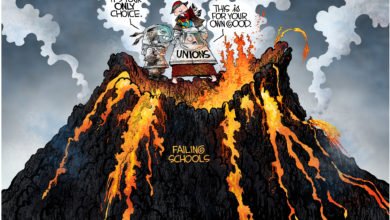The RFS Ethanol Mandate – and the Drought
 A federal tax credit for ethanol, created more than 30 years ago, expired on Saturday, December 31, 2011. During the past more than 30 years, the federal government provided more than $20 billion in subsidies for the use of ethanol. Most U.S. ethanol is produced from corn.
A federal tax credit for ethanol, created more than 30 years ago, expired on Saturday, December 31, 2011. During the past more than 30 years, the federal government provided more than $20 billion in subsidies for the use of ethanol. Most U.S. ethanol is produced from corn.
That’s all well and good, but…subsidies (in the form of tax credits) for ethanol may have ended, but there is this little something called the “Renewable Fuel Standard” (RFS), created while George W. Bush was president, as part of the Energy Independence and Security Act (EISA) of 2007. The Obama Environmental Protection Agency (EPA), under administrator Lisa Jackson, has decided to continue it.
For further perspective, Aaron Smith, at The American, the online American Enterprise Institute magazine, on January 4, 2012, wrote:
So why did the powerful corn ethanol lobby let it expire without an apparent fight? The answer lies in legislation known as the Renewable Fuel Standard (RFS), which creates government-guaranteed demand that keeps corn prices high and generates massive farm profits. Removing the tax credit but keeping the RFS is like scraping a little frosting from the ethanol-boondoggle cake.
So the RFS takes up the profit slack lost when the ethanol tax credit subsidies were ended.
The “Standard” calls for the EPA to be “responsible for developing and implementing regulations to ensure that transportation fuel sold in the United States contains a minimum volume of renewable fuel.” That means that farmers will continue to devote large quantities of land to Greenhouse Gas (GHG)-intensive corn, the kind used to make ethanol.
For comparison, in 2005 (before the mandate), corn was selling for $2 per bushel, and 1.6 billion bushels of corn, about 13 percent of the crop, was converted into ethanol. Today the price is over $8 per bushel, and the RFS mandate calls for over one third of the crop be converted into ethanol.
According to Aaron Smith, “The RFS mandates that at least 37 percent of the 2011-12 corn crop be converted to ethanol and blended with gasoline.” Smith continues: “The RFS mandate requires a massive quantity of corn to be converted to ethanol each year regardless of price or available supply.”
The Congress Budget Office (CBO), in July 2010, wrote, “… the scheduled increase in mandated volumes would require biofuels to be produced in amounts that are probably beyond what the market would produce even if the effects of the tax credits were included.” Demand for corn-based ethanol is driven by the RFS mandate. The tax credit that expired at the end of 2011 hardly made a difference.
As Robert Brice at Slate writes, there is no doubt that the corn ethanol mandate is distorting the market. Most corn is used not as food for humans, but as livestock feed. That fact means that prices for human food, from milk to cheese to eggs to meat, will increase as a result of the RFS mandate. America’s corn to ethanol process now consumes about as much grain as all of the US’s livestock.
The U.S. is currently exporting large quantities of corn ethanol to, of all places, Brazil. Yes, that is the same Brazil that accepted money and technology for “environmentally responsible” oil exploration from the US, then signed contracts with China for the oil.
The RFS mandate is bad enough, but now farmers nationwide are feeling the effects of the drought. The USDA has yet again downgraded the condition of U.S. corn crop, saying that only 26 percent of it is in “good” or “excellent” condition, down from 31 percent the week before. Iowa farmer Chris Barron says his “corn and soybean crops will likely generate yields 7 percent to 10 percent below what he estimated” due to the fact that the Midwest has received about 0.94 inches of rainfall so far in June, or about 20 percent of the 30-year average for the month.
Colin Carter, a UC Davis agriculture economist, said, “The ethanol policy is a bad idea because the impacts of a drought are much more severe than it used to be.”
Drought concern started a Chicago Mercantile Exchange (CME) Group grain markets price rally, sending corn futures up over 60 percent since mid-June 2012, and the price per bushel as high as $8.20. As of August 7, 2012, Iowa was, according to the U.S. Drought Monitor, suffering from severe to extreme drought. Illinois, the second-most prolific corn-producing state after Iowa, was in extreme to exceptional drought. Moderate to exceptional drought also affected most of Missouri, Indiana, Kansas, and Nebraska.
A less than expected corn crop will leave supplies low, raising questions over the ability of the U.S. to keep pace with growing worldwide demand. Jason Britt, president of Central States Commodities, Inc., based in Kansas City, MO, said, “There’s ‘almost zero’ chance the corn crop achieves the USDA’s current nationwide yield forecast of 166 bushels an acre. Given drought damage, the crop probably will drop below 160 bushels an acre, and perhaps to the low- to mid-150s.” As Aaron Smith commented, “Low corn stockpiles place the worldwide market in a perilous position. If the 2012 US crop is even slightly smaller than expected, corn prices will rise even further and plunge millions more people into extreme poverty.”
Corn ethanol producers would reduce their use of corn in the ethanol process in response to higher food and feed prices (demand) if they were unconstrained by the RFS mandate (see Figure 3, page 35).
Several senators and representatives who represent livestock producers and dairy farmers are willing to suspend the corn portion of the mandate, but they want the cellulosic ethanol part of the mandate enforced. But there is one small problem with that idea: cellulosic ethanol does not exist.
Now we find that eight biofuels groups are forming a coalition to fight calls to limit a federal mandate for renewable fuels. The call to suspend the mandate is caused by the drought. Advanced Biofuels Association, Advanced Ethanol Council, Algal Biomass Organization, American Coalition for Ethanol, Biotechnology Industry Organization, Growth Energy, National Biodiesel Board, and Renewable Fuels Association make up the coalition.
Add to the above the problems caused by the transportation, storage, and use of ethanol, and there is the makings of a real catastrophe. Ethanol and gasoline-ethanol blends “cannot be transported by gasoline pipelines” because water in the pipelines causes the ethanol to separate from the gasoline. Ethanol must be transported by its own independent distribution system. It is blended with gasoline just before delivery to retail stations. And engine ignition is “more difficult in colder weather for vehicles running on fuels with high ethanol content” because of ethanol’s lower vapor pressure.
As Aaron Smith says, “It is time for the federal government to stop requiring cars to burn food.” But I suppose that the Obama EPA would rather continue its RFS mandate than tell the truth about fracking, or about Obama’s war on “Big Oil.”
And let’s not forget George W. Bush’s part in this situation. It was he, after all, who got the ball rolling.
But that’s just my opinion.
Please visit RWNO, my personal web site.




